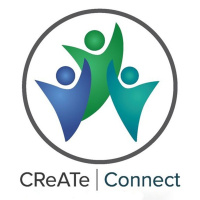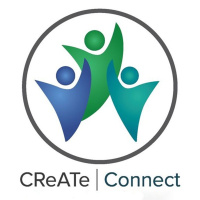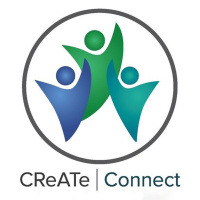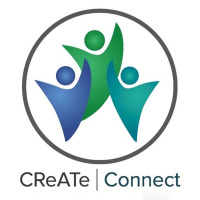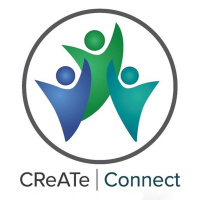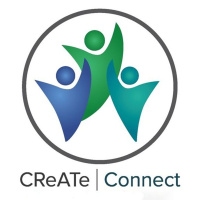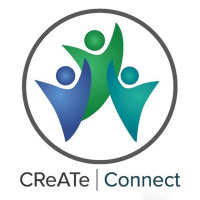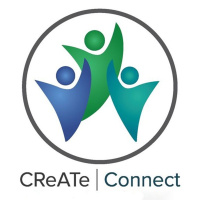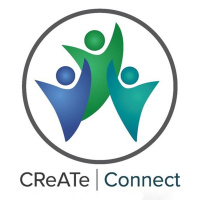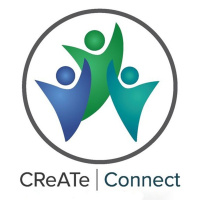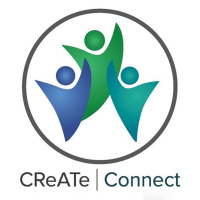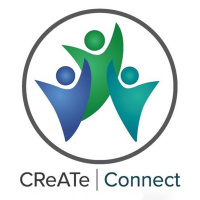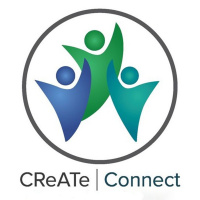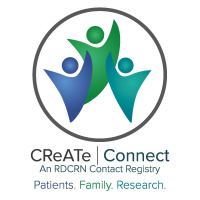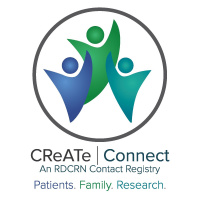Synopsis
CReATe podcasts are short recorded interviews on topics we hope will be of interest to patients with ALS and other motor neuron diseases.
Episodes
-
CReATe Author Series Ep. 15 - Drs. Terry Heiman-Patterson and Michael Benatar on Clinical Guidance for ALS/FTD at-risk carriers
02/06/2025 Duration: 32minDr. Terry Heiman-Patterson is a neurologist and professor at Temple University and the director of the Center for Neurodegenerative Disorders and the MDA/ALS Center of Hope. Dr. Michael Benatar is a Professor of Neurology and Chief of the Neuromuscular Division and Executive Director of the ALS Center at the University of Miami. In this podcast they will be discussing their recent publication “Guidance for clinical management of pathogenic variant carriers at elevated genetic risk for ALS/FTD”.
-
CReATe Author Series Ep. 14 - Drs. Ruben van Eijk and Michael Benatar on Phase 2 Trials and ALS
01/05/2025 Duration: 36minDr. Ruben van Eijk is an associate professor in the Department of Neurology at the University Medical Center Utrecht in the Netherlands as well as a statistical consultant and medical statistician for the clinical trial methodology group at the Julius Center also in Utrecht. Dr. Michael Benatar is a Professor of Neurology and Chief of the Neuromuscular Division and Executive Director of the ALS Center at the University of Miami. They will be discussing their recent publication “Rethinking phase 2 trials in amyotrophic lateral sclerosis”.
-
CReATe Author Series Ep. 13 - Dr. Benatar on Prognostic Markers and ALS
18/02/2025 Duration: 26minDr. Michael Benatar is a Professor of Neurology and Chief of the Neuromuscular Division and Executive Director of the ALS Center at the University of Miami. Here he discusses the recent publication “Prognostic clinical and biological markers for amyotrophic lateral sclerosis disease progression: validation and implications for clinical trial design and analysis”.
-
CReATe Author Series Ep. 12 - Drs. Jesse Crayle and Evadnie Rampersaud on Genetics and ALS Reversal Phenotype
02/01/2025 Duration: 26minDr. Jesse Crayle is a clinical neuromuscular fellow in the Department of Neurology at Washington University in St. Louis and Dr. Evadnie Rampersaud is a Principal Bioinformatics Research Scientist at St. Jude Children’s Research Hospital. They will be discussing their publication “Genetic Associations With an Amyotrophic Lateral Sclerosis Reversal Phenotype.”
-
ALS Untangled Series Ep. 60 - Nuedexta
04/12/2024 Duration: 24minNuedexta is a combination of dextromethorphan and quinidine, and is FDA approved for treating “pseudobulbar affect” (a symptom complex where patients lose control of their laughing and crying). Here we summarize recent trials suggesting that Nuedexta might also help bulbar function (speech, swallowing and oral secretions). We also discuss important risks, monitoring, and insurance coverage.
-
ALS Untangled Series Ep. 59 - Lions Mane
04/11/2024 Duration: 17minLions Mane is a mushroom that has neuroprotective, neurotrophic, antioxidant, and anti-inflammatory properties. Here we review what is known about its use in ALS models as well as patients living with the disease.
-
ALS Untangled Series Ep. 58 - Insulin
01/10/2024 Duration: 19minInsulin is a hormone most commonly used to lower blood sugar in people with diabetes. Here we talk about some theoretical ways it might help help people with ALS, as well as the lack of convincing case reports or trials and the risks.
-
ALS Untangled Series Ep. 57 - Caffeine
05/09/2024 Duration: 21minCaffeine is a chemical most of us ingest every day. In addition to its stimulant properties, there are some theoretical ways it could help slow ALS progression. Here we discuss the contradictory pre-clinical models and the lack of a convincing relationship between caffeine intake and ALS progression in natural history studies.
-
CReATe Author Series Ep. 11 - Dr. Benatar and the Miami Framework for ALS
13/08/2024 Duration: 30minMichael Benatar is a Professor of Neurology and Chief of the Neuromuscular Division and Executive Director of the ALS Center at the University of Miami. Here he discusses the recent publication “The Miami Framework for ALS and related neurodegenerative disorders: an integrated view of phenotype and biology”.
-
CReATe Author Series Ep. 10 - Drs. McHutchison and Benatar on Cognitive and Behavioral Changes in MND
15/02/2024 Duration: 29minDr. Caroline McHutchison is a Neuropsychologist and CReATe Clinical Research Scholar at the University of Edinburgh and Dr. Michael Benatar is a Professor of Neurology and Chief of the Neuromuscular Division and Executive Director of the ALS Center at the University of Miami. They will be discussing their recent publication “Temporal course of cognitive and behavioural changes in motor neuron diseases”.
-
CReATe Author Series Ep. 9 - Drs. Heatwole and Benatar on Patient Reported Outcome Measures and ALS
03/01/2024 Duration: 36minDr. Chad Heatwole is a Professor of Neurology and the Director of the Center for Health and Technology at the University of Rochester Medical Center and Dr. Michael Benatar is a Professor of Neurology and Chief of the Neuromuscular Division and Executive Director of the ALS Center at the University of Miami. They will be discussing their recent publication “The amyotrophic lateral sclerosis-health index (ALS-HI): development and evaluation of a novel outcome measure” and its role as a patient reported outcome measure for ALS.
-
ALS Untangled Series Ep. 56 - Sodium Chlorite
15/11/2023 Duration: 22minSodium chlorite is an experimental drug targeting macrophage activation. It exists in different formulations. An oral formulation has potentially deadly side effects. An IV formulation called NP001 has been in recent trials targeting a subset of people with ALS. Here we review the interesting development of this product and where we expect that to go in the near future.
-
ALS Untangled Series Ep. 55 - Rituximab
09/10/2023 Duration: 12minRituximab is an intravenous product that reduces B lymphocytes. It can help improve strength in patients with myasthenia gravis and multi-focal motor neuropathy, neuromuscular diseases that are caused by circulating antibodies made by B lymphocytes. In this podcast we examine the possible use of rituximab to treat patients with ALS
-
ALS Untangled Series Ep. 54 - Ozone Therapy
05/09/2023 Duration: 18minOzone is an oxidizing agent which has some surprisingly plausible mechanisms by which it could influence ALS progression. It can also be dangerous. The FDA has warned against using it as a treatment for any disease. Further studies are needed to determine whether there is any dose or route of administration that might be safe and effective for use in people with ALS.
-
ALS Untangled Series Ep. 53 - Astaxanthin
08/08/2023 Duration: 20minAstaxanthin is a naturally occurring chemical which has plausible mechanisms for treating ALS and appears reasonably safe and well tolerated in non-ALS trials. We look forward to ALS-specific trials planned later this year which should shed important light on whether this is specifically safe for people with ALS, and whether it really can slow ALS progression.
-
CReATe Author Series Ep. 8 Part I - Drs. Turner and Benatar on Neurofilament Light Chain as Biomarker for ALS
12/06/2023 Duration: 20minDr. Martin Turner is a Professor of Clinical Neurology & Neurosciences at the University of Oxford and Dr. Michael Benatar is a Professor of Neurology and Chief of the Neuromuscular Division and Executive Director of the ALS Center at the University of Miami. They will be discussing their recent publication “Neurofilament light chain in drug development for amyotrophic lateral sclerosis: a critical appraisal”, and the potential role of NfL as a biomarker for ALS. This is part I of a two part series.
-
CReATe Author Series Ep. 8 Part II - Drs. Turner and Benatar on Neurofilament Light Chain as Biomarker for ALS
12/06/2023 Duration: 25minDr. Martin Turner is a Professor of Clinical Neurology & Neurosciences at the University of Oxford and Dr. Michael Benatar is a Professor of Neurology and Chief of the Neuromuscular Division and Executive Director of the ALS Center at the University of Miami. They will be discussing their recent publication “Neurofilament light chain in drug development for amyotrophic lateral sclerosis: a critical appraisal”, and the potential role of NfL as a biomarker for ALS. This is part II of a two part series.
-
ALS Untangled Series Ep. 52 - Antimycobacterial Antibiotics
01/05/2023 Duration: 16minThere is a theorized association between mycobacteria and ALS, and two published case reports described improvements in ALS-like conditions (both with atypical features) after treatment with antimycobacterial antibiotics. Here we review these in detail and discuss our thoughts on how they might change our approach in certain patients in the future.
-
ALS Untangled Series Ep. 51 - Corticosteroids
03/04/2023 Duration: 13minCorticosteroids are a class of medications with well-studied effects on the immune system and some people living with ALS have reported benefits from them online. Here we review the pre-clinical and clinical data. We conclude that there is currently no clear evidence that steroids can slow ALS progression, and they can have many side effects.
-
ALS Untangled Series Ep. 50 - Butyrate
02/03/2023 Duration: 26minButyrates have plausible mechanisms for slowing ALS progression and positive pre-clinical studies. One trial suggests that sodium phenylbutyrate (NaPB) in combination with Tauroursodeoxycholic acid (TUDCA) can slow ALS progression and prolong survival, but the specific contribution of NaPB toward this effect is unclear. Butyrates appear reasonably safe for use in humans. Based on the above information, we support a trial of a butyrate in PALS, but we cannot yet recommend one as a treatment.

